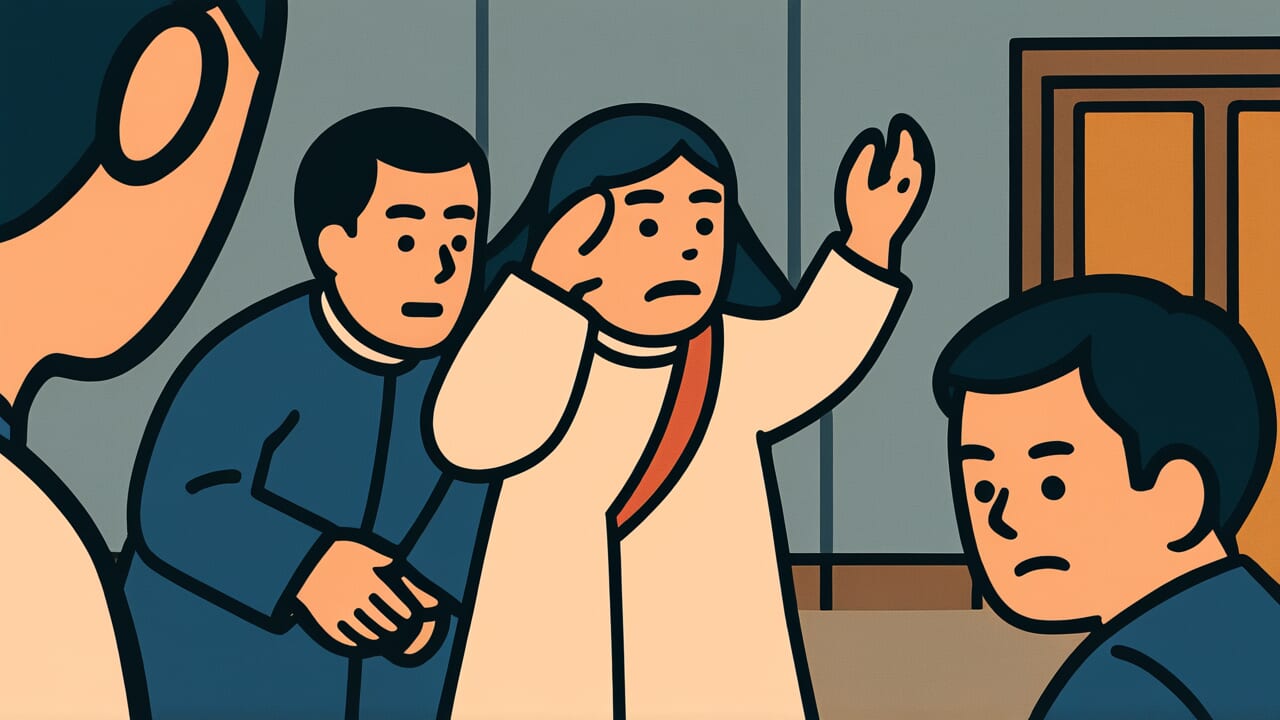How to Read “Even kindness becomes harm when excessive”
Nasake mo sugureba ada to naru
Meaning of “Even kindness becomes harm when excessive”
This proverb means that kindness and compassion, when taken too far, can actually harm the person you’re trying to help rather than benefit them.
Even actions done with good intentions can backfire if overdone. They may rob someone of their independence, create dependency, or even hurt their dignity.
For example, if you do everything for a child, they won’t develop the ability to think for themselves or face difficulties.
If you always cover for a friend’s mistakes, you take away their chance to learn responsibility.
Excessive help makes people powerless and ultimately prevents their growth.
This teaching applies to many situations today: parent-child relationships, workplace training, and friendships.
True compassion means trusting in someone’s growth and keeping an appropriate distance.
Origin and Etymology
No specific source has been identified for this proverb, but it has been passed down as traditional Japanese wisdom for generations.
The phrase consists of three elements: “nasake” (kindness), “sugureba” (when excessive), and “ada” (harm).
“Nasake” refers to compassion and kindness, virtues long cherished as essential for smooth human relationships.
“Sugureba” is an older way of saying “sugireba,” meaning to go too far or exceed limits. “Ada” means enemy or harm.
This expression likely reflects the Confucian concept of “chūyō” (the middle way), which teaches that moderation is important and extremes should be avoided.
Japan has long had the teaching “going too far is as bad as not going far enough,” showing a culture that warns against excess.
What’s interesting is the paradoxical structure: “nasake” (kindness), a good thing, transforms into its opposite, “ada” (harm), when taken too far.
This isn’t just a moral lesson. It shows the importance of delicate balance in human relationships.
Even the virtue of kindness can hurt someone if it damages their independence or dignity.
This proverb contains a deep understanding of human nature.
Usage Examples
- My parents interfered too much in my son’s job hunting, and “even kindness becomes harm when excessive”—they ended up hindering his independence
- I always covered for my subordinate’s mistakes, and they stopped growing—truly “even kindness becomes harm when excessive”
Universal Wisdom
The universal truth this proverb reveals is that good intentions and good results don’t always match—this is the essence of human relationships.
We all have pure feelings of wanting to help and protect someone.
But when that goodwill becomes more about relieving our own anxiety than trusting the other person’s potential, the relationship becomes distorted.
Humans have a fundamental desire to grow. By facing difficulties and overcoming them, people gain confidence and ability.
However, when someone always solves problems ahead of time, this growth cycle gets cut off.
The person feels helpless, loses self-efficacy, and eventually becomes dependent.
What’s even more serious is that excessive kindness can hurt someone’s dignity.
Being constantly placed in the position of receiving help implicitly sends the message “you can’t do anything on your own.”
This damages self-esteem and can even create resentment.
This proverb has been passed down because our ancestors learned from experience that love and control, protection and suppression, are separated by a thin line.
True compassion means having the courage to trust someone’s strength and watch over them.
When AI Hears This
The biological immune system follows an interesting law. Vaccines strengthen immunity by introducing weakened pathogens into the body, but too much causes disease instead.
This phenomenon is called “hormesis”—it follows a dose-response curve where moderate stimulation strengthens organisms, but excess becomes harmful.
For example, small amounts of ultraviolet light produce vitamin D that strengthens bones, but too much causes skin cancer.
Kindness toward people follows the same curve. Too little help leaves someone struggling, but appropriate help stimulates problem-solving abilities and promotes growth.
However, when it becomes excessive, the person’s self-recovery function stops working.
In immunology, it’s known that “too little antigen stimulation weakens immunity”—the same applies to human relationships.
People given everything lose the power to face difficulties themselves.
Even more important is the phenomenon where the immune system goes haywire against excessive foreign substances and starts attacking the body itself.
This is called an allergic reaction. Excessive kindness similarly triggers distorted responses like dependency and indulgence in the receiver.
It can ultimately turn into aggression toward the helper. Biological thresholds and social thresholds have surprisingly similar structures.
Moderate stimulation is what both life and human relationships need.
Lessons for Today
This proverb teaches us to ask: what is true kindness? When you care deeply about someone, you might want to do everything for them.
But stop and think for a moment. Is it really for their benefit?
In modern society, we see “doing too much” everywhere: overprotective parenting, overly interfering relationships, excessive service.
You might think you’re being kind, but you could be taking away opportunities for growth.
What matters is believing in the other person’s strength. They might fail. They might struggle.
But those experiences are what make them stronger.
What you can do is watch over them, offer a hand when needed, and support them as they stand on their own feet.
Sometimes pulling back your hand is the greatest compassion. Have the courage to step back and trust in their potential.
That’s what it truly means to care about someone.
May your kindness become the wind that helps them spread their wings.



Comments